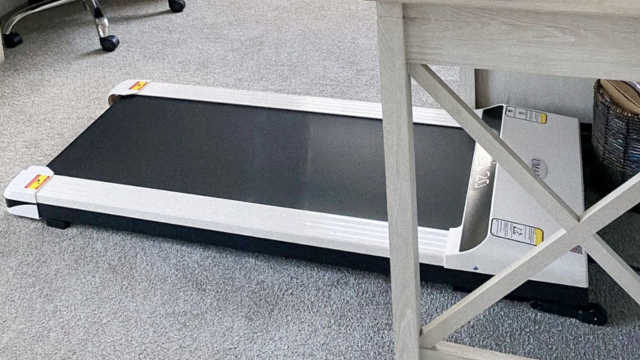13 Work From Home Questions To Ask Your Boss
This site contains affiliate links. I may earn a small commission, at no extra cost to you.
To help individuals navigate this new work setup, here are 13 work from home questions to ask your boss. The COVID-19 pandemic has changed the way people work. With social distancing measures in place, many companies have shifted to remote work to keep their employees safe. This has led to a rise in work from home arrangements, with many people finding themselves working from their living rooms, kitchens, and even bedrooms. While this setup has its perks, it also poses its own set of challenges.
These questions cover a range of topics, from setting up a home office to maintaining work-life balance. By answering these questions, individuals can create a conducive work environment and establish a routine that works for them. Whether you’re new to remote work or have been doing it for a while, these questions can help you make the most out of your work from home setup.

Evaluating Remote Work Opportunities
When considering a remote work opportunity, it’s important to evaluate the job and the company to ensure it’s a good fit. Here are some questions to ask before accepting a remote job:

Questions to Ask Before Accepting a Remote Job
- What are the expectations for working hours and availability? Will you be expected to work a set schedule or have flexibility in your hours?
- How will communication be handled? Will there be regular check-ins with a manager or team members? What tools will be used for communication?
- What is the company culture like? Is it a good fit for your work style and values?
- What is the onboarding process like for remote workers? Will there be training and support provided?
- How will performance be evaluated? Will there be regular feedback and opportunities for growth?
- What benefits are offered? Are there health insurance, retirement plans, or other perks?
- How is work-life balance supported? Are there policies in place to prevent burnout and encourage self-care?
- What is the company’s track record for remote work? Have they had success with remote workers in the past?
- What is the pay and compensation package like? Is it competitive for your industry and experience level?
- What equipment and software will be provided? Will you need to use your own equipment or will the company provide it?
- What is the company’s policy on data security and privacy? How will sensitive information be handled?
- What is the process for resolving conflicts or issues that arise while working remotely?
- How will you stay connected to the company culture and team members while working remotely?
By asking these questions, you can get a better understanding of what the remote work opportunity entails and whether it’s the right fit for you. It’s important to have open communication with the company and be honest about your needs and expectations to ensure a successful remote work experience.

Preparing for the Interview
When preparing for a work from home (WFH) interview, it is important to approach it just like any other job interview. However, there are some unique aspects to consider when it comes to WFH positions. Here are some tips to help you prepare for your WFH interview:
Work From Home Questions to Ask Employer During Interview
It’s important to ask questions during the interview to ensure you have a clear understanding of the WFH position and what it entails. Here are some questions to consider asking the employer:
- What are the expectations for communication and availability during work hours?
- Are there any specific software or hardware requirements for the job?
- How will training be provided for the WFH position?
- What is the company’s policy for reimbursing WFH expenses, such as internet and phone bills?
- How does the company ensure data security for WFH employees?
- How does the company measure productivity for WFH employees?
- Are there any WFH-specific policies or procedures that employees must follow?
- How does the company handle technical issues or equipment malfunctions for WFH employees?
- What is the company’s policy for handling confidential information for WFH employees?
- What is the company’s policy for handling work-related injuries or accidents for WFH employees?
- How does the company handle performance evaluations for WFH employees?
- What is the company’s policy for handling work-related expenses for WFH employees?
- How does the company handle time tracking and attendance for WFH employees?
By asking these questions, you can ensure that you have a clear understanding of the WFH position and what is expected of you as an employee. Additionally, it shows the employer that you are serious about the position and are taking the necessary steps to prepare for it.

Understanding Employer Expectations
When working from home, it is important to understand your employer’s expectations to ensure a successful and productive work experience. This section will cover two key areas to clarify with your employer: job responsibilities and communication/availability.

Clarifying Job Responsibilities
One of the most important aspects of working from home is understanding your job responsibilities. This includes knowing what tasks you are responsible for, deadlines, and any specific expectations your employer may have. To clarify your job responsibilities, consider asking your employer the following questions:
- What are my specific job responsibilities?
- Are there any specific deadlines I need to meet?
- Are there any specific tools or software I need to use?
- How will my work be evaluated?
By clarifying your job responsibilities, you can ensure that you are meeting your employer’s expectations and contributing to the success of the company.

Communication and Availability
Another important aspect of working from home is communication and availability. It is important to establish clear lines of communication with your employer to ensure that you are available when needed. To clarify communication and availability expectations, consider asking your employer the following questions:
- How should I communicate with you and other team members?
- What are your expectations for my availability during work hours?
- Are there any specific times when I need to be available for meetings or calls?
- How should I handle urgent issues outside of regular work hours?
By clarifying communication and availability expectations, you can ensure that you are meeting your employer’s needs and contributing to a successful work from home experience.

Exploring Company Culture
When working from home, it’s important to feel connected to your company’s culture even though you’re not physically in the office. Here are some questions to ask during the interview process to get a better understanding of the company culture:
Team Dynamics and Support
- How does the company foster team collaboration and communication?
- What tools and resources are provided to help remote workers stay connected with their team?
- How does the company support employee well-being and work-life balance?
- Are there any team-building activities or events for remote workers to participate in?
By asking these questions, job seekers can gain insight into how the company values its employees and promotes a positive work environment. It’s important to find a company that aligns with your personal values and work style, even when working from home.

Assessing Technical and Logistical Needs
When transitioning to a work from home setup, it is important to assess one’s technical and logistical needs to ensure a smooth and productive work experience. This section will cover two important aspects to consider: Home Office Setup and Equipment and IT Support and Resources.

Home Office Setup and Equipment
Creating a comfortable and functional home office is crucial to maintaining productivity and focus. A well-equipped home office should have the following items:
- A comfortable and ergonomic chair
- A spacious desk
- Sufficient lighting
- A reliable computer or laptop
- A high-speed internet connection
- A printer and scanner (optional)
It is important to create a designated workspace that is free from distractions and noise. This will help create a professional and productive atmosphere.

IT Support and Resources
Working from home requires reliable and secure IT support and resources. It is important to have access to the following:
- A virtual private network (VPN) for secure remote access to company files and systems
- Collaboration tools such as video conferencing, instant messaging, and project management software
- Cloud storage for easy access to files and documents
- Antivirus and malware protection software
- Technical support for troubleshooting and assistance

Having access to these resources will ensure that the employee can work efficiently and securely from home.
In summary, assessing technical and logistical needs is crucial when transitioning to a work from home setup. Creating a comfortable and functional home office and having access to reliable IT support and resources will help ensure a productive work experience.





